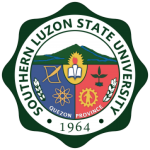I. Purpose and Coverage
To identify students with special needs, persons with disabilities, solo parents, and indigenous people and assist them in their academic, emotional, and social needs. Also, to create a program that will cater to the needs of each group.
II. Definition of Terms
a. Indigenous people – A group of people or homogeneous societies identified by self- ascription and ascription by others, who have continually lived as organized communities on community-bounded and defined territory, and who have, under claims of ownership since time immemorial, occupied, possessed, and utilized such territories, sharing common bonds of language, customs, traditions, and other distinctive cultural traits, or who have, through resistance to political, social and cultural inroads of colonization, non-indigenous religions, and cultures, become historically differentiated from the majority of Filipinos.
b. Person with Disabilities – classified as a person with a physical, mental, or sensory impairment that hinders them from living a normal lifestyle.
c. Student with Special Needs – any of various difficulties (such as a physical, emotional, behavioral, or learning disability or impairment) that causes an individual to require additional or specialized services or accommodations (such as in education or recreation)
d. Solo Parent – one in which one parent manages the household alone for him/herself and his/ her children, with no regular partner.
III. General Guidelines
- Equal opportunities for PWDs, indigenous people, solo parents, and academic accommodation for learners with special needs.
- Shall ensure that academic accommodation is made available to PWDs and learners with special needs with proper consultation and conference with students with disabilities together with their teachers, parents, and guardians.
- Shall be provisions or programs for life skills training e.g. conflict management and counseling or testing referrals shall be done whenever necessary. Shall be a regular submission of the list of students with disabilities detailing the intervention programs to the CHEDROs in order to build up the Database of HEIs Accommodating PWDs.
IV. Disability Categories
- Psychosocial disability – this pertains to any psychological or social condition that limits a person’s ability to interact with another person or the environment.
- Mental disability – People suffering from Attention-Deficit / Hyperactivity Disorder (ADHD), Down Syndrome, bipolar disorder, long-term recurring depression, and schizophrenia, among others, are classified as PWD in the Philippines.
- Chronic illness – some illnesses may not cause disability unless a problem occurs. One such case is diabetes. Diabetes does not cause disability. However, complications like diabetic retinopathy can occur when the body cannot process sugar. This could cause blindness, gangrene, and heart problems.
- Learning disability – a learning disability makes it difficult for a person to focus, comprehend, and keep information. It is usually detected during a person’s time in school. People with learning disabilities are recommended to attend schools with a special education system to meet their unique needs.
- Visual disability – Visual impairments are considered disabilities only when they can no longer be corrected, such as permanent blindness. A person who can still see while wearing glasses is not classified as disabled.
- Orthopedic disability – The orthopedic disability category covers all people who have had their extremities amputated. They include people with scoliosis, as well as dwarfism, and amputated hands or feet.
- Communication disability – A communication disability has two sub-types: hearing impairment and speech and language impairment. A person is impaired in hearing when he or she partially or completely loses his or her hearing ability. Meanwhile, a person with speech and language impairment has trouble articulating words.
VI. Activities
- Create a support group for students with special needs, persons with disabilities, solo parents, and indigenous people.
- Facilitate webinars that will address the needs of each group.
- Counseling sessions will be available to students regarding academic, personal, social, and career concerns.
- Facilitate training to teachers regarding the inclusivity of the students with special needs.
- Conduct a parenting webinar for solo parents, and also for the parents of students with special needs.
Note:
Creation: October 2022
Revision: The above-cited guidelines is reviewed annually by the Office of Student Affairs and Services.
